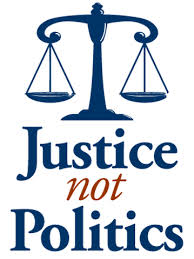Henry Adams was right.

A great teacher affects eternity; no one knows where his or her influence stops.
Larry Schwartz, my college history instructor, was that type of educator.
Outside my parents, Professor Schwartz was the most influential person in my life. As an educator, he guided my studies of social, racial, and political injustices. As a mentor, he inspired me to become a professional dedicated to helping the downtrodden and disadvantaged.
He taught me, above all else, that law is the ultimate instrument of political power.
Does Legal Neutrality Exist?
This belief came under heavy attack at law school.
At law school, one of my first year professors repeatedly asserted that the law was neutral. Despite trying, I was unable able to buy into his proposition. It did not fit my reality.
I was a quick learner. After a few mental skirmishes, I grasped that whenever I assessed a Supreme Court decision through a political panorama, I had to be fully prepared for biased intellectual rejection disguised as legal objectivity.
Ironically, his reactions to my perspectives, and my reactions to his perspectives, were proof positive one’s political and legal views cannot be entirely severed.
To say the least, it was a long two semesters.
Shortly after graduation, my ex-law professor accepted a top legal position with a newly-elected presidential administration opposed to most of my political views.
The news clarified our classroom disagreements.
In an ideal world, the administration of justice should be divorced from political forces.
That’s not the world we live in.
Many of my undergraduate, law school, and professional colleagues went into the practice of law. Several became career politicians. Others are business and government leaders.
This is the norm for our society, whatever college or university one attended, whatever community one calls home.
To believe in a complete separation of society’s political and legal spheres of influence, sadly, is to live in a mythological world where movers and shakers have no connections to each other.
To the best of my knowledge, there is no such society, not even Democratic America.
The Demise Of The Legal Neutrality Myth
I was reminded of my law professor’s proclamations of legal neutrality a few months ago when the Obama administration decided to hire new government attorneys.
According to anti-immigration reform critics, the president was choosing new lawyers who favored backdoor amnesty.
Certainly, the Department of Justice should not be forced to hire individuals who would undermine the rule of law. This is a far cry, however, from choosing competent staff members who have espoused varying interpretations of existing regulations.
Or are we now to infer that only legally-trained folks who adhere to a restricted set of political beliefs should be allowed to work for our government?
If so, is there any basis left for a theory of justice based on legal neutrality?
A Political Litmus Test For Government Attorneys
In retrospect, my law professor may have been partially correct.
Justice, as an ideal, may be blind.
But the legal system, as an institution, is not.
Nowhere is this more evident than immigration law.
One needs to look no further than the comments of former Justice Department attorney J. Christian Adams.
Appearing on Fox News, Adams alleged the Obama Administration was engaging in backdoor amnesty by hiring new lawyers who are openly hostile toward immigration enforcement.
According to Adams, the new attorneys have “activist pro-amnesty and pro-asylum” backgrounds, and hail from “radical open borders organizations.”
Such views do not reflect legal neutrality.
Moreover, his criticisms overlook the real issue at stake here. Simply stated, what is the proper role of Department of Homeland Security attorneys?
Are they hired to slam all immigrants, regardless of the merits of their cases? Or to ensure that justice in the administration of immigration laws is carried out?
In my view, as a Riverside immigration attorney, since laws are to be enforced in a fair manner, those appointed to lead the government’s missions should act in an unbiased way.
Yet, because law is a tool of political power, this is more often the exception, not the rule.
The Political Thicket Of Immigration Law
Of course, Adams’ comments were not intended to be objective.
His fiery remarks stem from a political scheme to heighten anti-immigrant public opinion . . . to slant immigration attorney appointments . . . to negatively affect immigration case outcomes.
Such actions provide yet another example of the interplay between our political and legal systems – which are not as separated as my law professor asserted, or as taught in many high school history and even college courses.
In short, legal neutrality is secondary to political pandering.
Five decades ago, the Supreme Court entered the political thicket. The justices were forewarned that once they entered, the court would never be able to disentangle itself.
The court went forward anyway. There was no alternative. The political system was not willing to correct its own biases.
Legal principles and political policies were placed on a permanent collision course.
Shortly afterwards, class action law suits became common for both liberals and conservatives seeking to overturn unfavorable legislative outcomes. Although such matters were legal in nature, the agendas were political.
During the 1980s, President Reagan stacked the federal judiciary. The maneuver was politically inspired. The president expanded the number of federal appellate seats, then quickly filled them with ideologically sympathetic appointees.
From that day forward, if not sooner, the myth of political and legal separation was exposed for all to acknowledge.
Immigration law, just a few years later, was caught in this maelstrom.
Political Personnel Is Legal Policy

By the mid 1990s a conservative Congress ran over, around, and through principles of constitution law, such as due process, in passing wide-ranging changes to immigration rules and regulations.
They were protected by a similarly partisan judiciary.
In recent years, federal courts have become slightly more ideologically balanced.
This turn has enabled immigrant advocates to achieve some long overdue legal gains.
Many of these appellate battles have been spurred by the rigid position taken by DHS lawyers. Rather than exercise independent judgment, they assume a hardline anti-immigrant political stance.
As an immigration defense lawyer, I often wonder what would happen if there was a little more balance in the political orientations of persons appointed to the government bar and the immigration bench, as well as the federal judiciary.
In fact, can our legal system survive when combatants no longer believe in honorable conflict resolution, instead adhering to a mentality of political victory at any cost?
Unfortunately, in the view of critics like Adams, diversity of legal opinion in government circles is not viewed as a political good.
“This administration knows that personnel is policy,” notes Adams, “and they’re changing the personnel to change the policy.”
Read that again.
“Personnel is policy.”
Under this approach, a litmus test should be applied to the hiring of all government attorneys.
For Adams, only attorneys who have never assisted immigrants should be allowed to represent the government in immigration cases.
Hmmmm.
Would my ex-law school professor, who resides on the same political side of the fence as Adams, scold him about his lack of legal neutrality?
Does Judicial Balance Exist At Immigration Court?
The use of litmus tests, however, is not new to immigration law.
Nor limited to the Department of Homeland Security.
Immigration courts suffer from the same defect.
Between September 2004 and December 2006, under former Attorney General Alberto Gonzales, a political filter was utilized to fill vacancies for immigration judges, positions which are technically non-political jobs.
A Justice Deportment report revealed that although the Executive Office for Immigration Review openings during this time frame were advertised in the usual manner, all appointments came as a result of political connections – recommendations by the White House, Republican members of Congress, or trusted sources.
Unsurprisingly, the selections were based on anti-immigrant sentiments.

According to the report, two judges were hired without being interviewed.
Experience with immigration legal issues was not necessary.
Soon after the scandal broke, the hiring of immigration judges was returned to the EOIR. This move did not mean political ideology and views towards immigrants were no longer part of the judicial hiring process.
As any lawyer who appears before immigration judges knows, an anti-immigrant slant still rules the bench.
Rather, such bias is more discreet nowadays. It is not an official part of the job requirement. But a quick glance at the backgrounds of current immigration judges reveals a glaring numerical disparity between those who have represented immigrants in the past and those who have not.
Balance is not the buzzword.
Political Fears At Immigration Court
News surfaced last week that a Los Angeles immigration judge, A. Ashley Tabaddor, had sued her employers, the Department of Justice and the Executive Office of Immigration Review, for not allowing her to hear cases involving Iranian immigrants.
The case raises the validity of Adams’ implied concern whether legally-trained professionals can check their personal political opinions at the door.
Tabaddor, an active member of various Iranian-American organizations, has personally recused herself from eight cases since the Justice Department order went into effect, despite no evidence of wrongdoing or bias.
The DOJ and EOIR need not worry about her tendencies. Given our courtroom interactions, her experience as a former prosecutor should not be minimized.
Viewed politically, Tabaddor’s complaint is a reflection of our government’s unjustified fears of Iranian bogeymen.
As her attorney, Ali Mojdehi explains, the actions of the DOJ and EOIR, if left unchecked, “will have a chilling effect on federal public servants’ constitutional rights of free speech and association and will call into question both the independence of the judges sitting on the immigration courts and their ability to exercise their judicial decision-making consistent with constitutional dictates.”
Immigration Courts And Immigration Politics
Tabaddor’s action illustrates even those who manage our nation’s highest immigration law institutions fear a person’s political and legal beliefs cannot be totally severed.
Given this perspective, internal encroachments on the dominant institutionalized political viewpoint cannot be tolerated.
The narrow selection of government lawyers and appointment of immigration judges are politically significant because personnel dictates how legal decisions affecting immigrants are determined.
The more constricted the circle of acceptable employees, the less opportunity for pro-immigrant interpretations of law.
In other words, immigration law is the ultimate instrument of immigration politics.
By Carlos Batara, Immigration Law, Policy, And Politics




